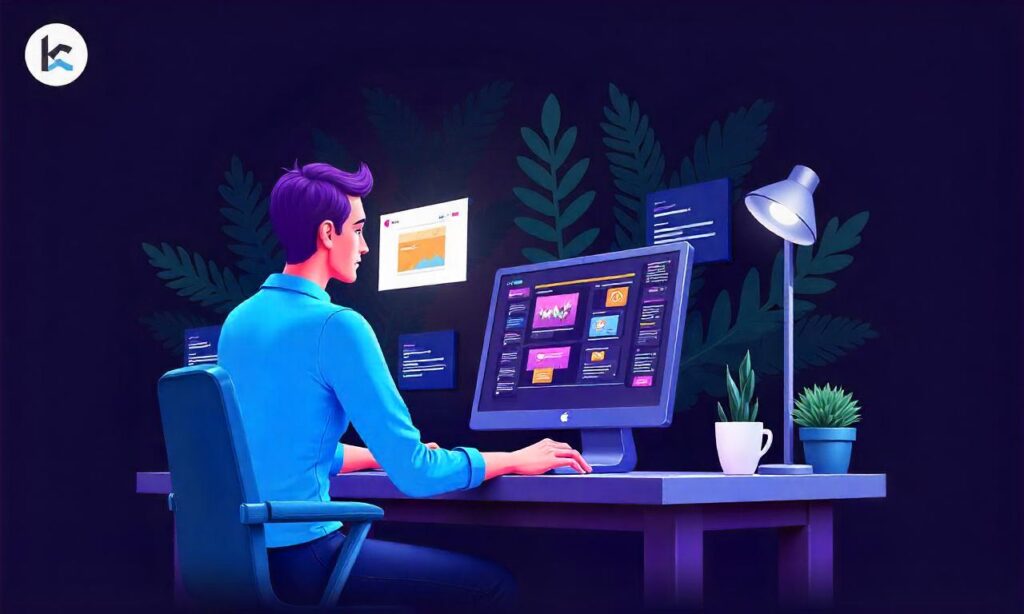Essential Tips for Coding Beginners to Get Started

Starting your journey in coding can feel overwhelming, especially with so many programming languages, tools, and concepts to learn. But with the right tips for coding beginners, you can build a strong foundation and avoid common pitfalls. Whether you’re interested in web development, data analysis, or app creation, the key is to approach learning methodically. This article provides a comprehensive guide to tips for coding beginners, covering everything from choosing the right language to staying motivated.
Section 1: Choose the Right Programming Language for Your Goals
Before diving into coding, it’s crucial to select a programming language that aligns with your goals. Different languages are designed for specific tasks, so understanding your interests will help you make an informed decision. For example, Python is often recommended for beginners due to its simple syntax and versatility in fields like data science, automation, and web development. On the other hand, JavaScript is ideal for those looking to build interactive websites or apps, while Java is a solid choice for learning object-oriented programming principles.
Understanding the Basics of Programming Languages
Every programming language has its own set of rules and structures, but they all share fundamental concepts like variables, loops, and functions. Beginners should start with a language that balances simplicity and practicality, allowing them to create small projects and gain confidence. Python, for instance, uses indentation instead of brackets to define code blocks, making it easier to read and write for new learners. When choosing a language, consider the community support and resources available. A strong community means more tutorials, forums, and open-source projects to learn from. Languages like JavaScript and Python have vast ecosystems, making it easier to find help when you’re stuck.
Start with a Popular Language and Build From There
While niche languages may offer unique features, they often have smaller communities and fewer learning materials. Tips for coding beginners suggest starting with a widely used language to maximize your learning opportunities. For instance, if you’re interested in web development, JavaScript is the backbone of modern websites, and learning it early will give you a head start. Don’t feel pressured to master multiple languages at once. Focus on one language, practice consistently, and gradually expand your knowledge as you become more comfortable. This approach ensures you develop a deep understanding of programming fundamentals before moving to more advanced topics.
Section 2: Set Up a Coding Environment That Works for You
A well-organized development environment is essential for tips for coding beginners. This includes choosing the right tools, organizing your workspace, and setting up a system that helps you stay productive.
Text Editors and Integrated Development Environments (IDEs)
Text editors like VS Code or Sublime Text are great for beginners because they’re lightweight and easy to use. However, as you progress, an IDE like PyCharm (for Python) or WebStorm (for JavaScript) can offer more advanced features like code autocompletion and debugging tools. When setting up your environment, prioritize simplicity and flexibility. Start with a basic text editor and gradually add features as needed. For example, using a simple IDE like Visual Studio Code can help you write and test code efficiently without overwhelming you with complex settings.
Version Control and Code Organization
Learning to use version control tools like Git is a crucial tip for coding beginners. Git allows you to track changes in your code, collaborate with others, and revert to previous versions if something goes wrong. Platforms like GitHub or GitLab provide free repositories for beginners to practice and share their work. Organize your projects into folders and use clear naming conventions. This habit will save you time as your coding projects grow in complexity. For instance, creating separate folders for different projects and labeling them with dates or purposes can help you manage your codebase effectively.
Section 3: Learn Through Practice and Small Projects
The best tips for coding beginners emphasize the importance of hands-on practice. Instead of memorizing syntax, focus on applying what you learn to real-world scenarios.

Start with Simple Projects to Build Confidence
Beginners should start with small projects that allow them to practice coding without feeling overwhelmed. For example, creating a to-do list app or a basic calculator can help reinforce core concepts like loops, conditionals, and functions. These projects provide a sense of accomplishment and highlight how coding can solve practical problems. Breaking down larger tasks into smaller steps is a key strategy. If you’re unsure where to start, begin with a single feature or function and build from there. This approach ensures you don’t get discouraged by complex problems early in your journey.
Use Online Resources and Tutorials
Online tutorials, coding challenges, and documentation are invaluable for tips for coding beginners. Platforms like freeCodeCamp, Codecademy, and LeetCode offer structured learning paths and exercises to test your knowledge. Additionally, reading official language documentation (like Python’s docs or JavaScript’s MDN) can deepen your understanding of syntax and best practices. Don’t hesitate to seek help when you’re stuck. Forums like Stack Overflow or Reddit’s r/learnprogramming are great places to ask questions and learn from others’ experiences. Engaging with these communities can accelerate your learning and provide support when needed.
Section 4: Develop Good Coding Habits Early On
Consistency, organization, and a growth mindset are essential tips for coding beginners to build long-term success.
Practice Coding Daily to Build Muscle Memory
Regular practice is one of the most effective ways to improve coding skills. Set aside time each day to write code, even if it’s just for 15–30 minutes. This habit helps reinforce concepts and improves your ability to think logically. Establishing a routine can make a significant difference. For example, dedicating specific hours to coding tasks or using time-blocking techniques can help you stay focused and avoid burnout. Remember, small, consistent efforts often yield better results than long, sporadic sessions.
Write Clean and Readable Code
Clean code is a fundamental tip for coding beginners to adopt early. Avoid writing overly complex code for simple tasks, and use meaningful variable names and comments to explain your logic. Tools like linters (e.g., ESLint for JavaScript or Pylint for Python) can help identify code style issues and improve readability. Formatting and indentation are also critical. Properly structured code is easier to debug and understand, especially when collaborating with others. For instance, using consistent indentation (like four spaces or a tab) can make your code more readable and professional-looking.
Embrace Debugging and Problem-Solving
Debugging is an inevitable part of coding, and it’s one of the most important tips for coding beginners. Instead of seeing errors as setbacks, treat them as learning opportunities. Use print statements, debuggers, and logs to identify and fix issues in your code. Developing problem-solving skills takes time. When faced with a challenge, break it down into smaller parts and research solutions step by step. For example, if you’re struggling with a specific function, look up examples or ask for help on forums. This method builds resilience and helps you tackle more complex problems in the future.
Stay Curious and Keep Learning
The world of coding is constantly evolving, so curiosity is a key trait for coding beginners. Stay updated with new technologies, attend coding workshops, and explore different areas of programming. This mindset ensures you remain adaptable and open to learning new skills. Learning doesn’t stop after mastering the basics. For instance, after learning Python, you might explore frameworks like Django for web development or libraries like Pandas for data analysis. This continuous learning process keeps you engaged and helps you grow as a developer.
Conclusion
In summary, tips for coding beginners are the foundation of a successful coding journey. By choosing the right language, setting up a productive environment, practicing through small projects, and developing good habits, you’ll build the confidence and skills needed to thrive in the field. Remember, the key to mastering coding is consistency and persistence. Start small, stay curious, and don’t be afraid to make mistakes—each one is a step toward improvement. With these essential tips for coding beginners, you’ll be well on your way to becoming a proficient developer.
